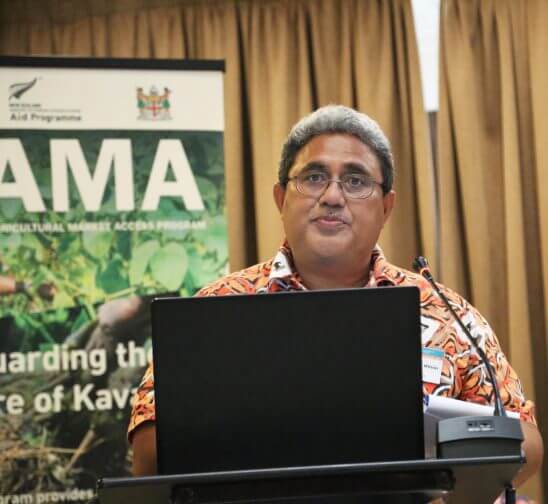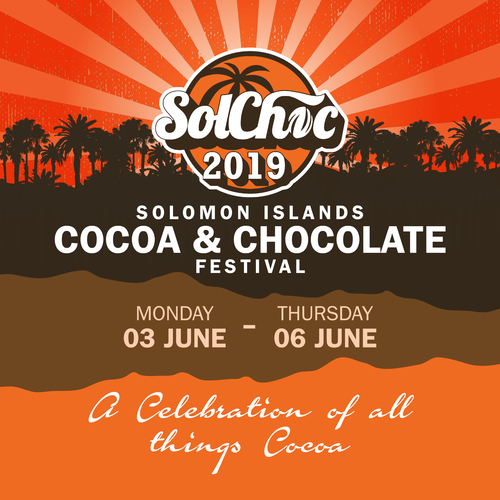Lesson from the past paves the way forward for Samoa’s exports
When the European Union made a decision to ban kava imports in 2002, kava-producing countries in the Pacific were left reeling from the impact of the ban.
Among those countries was Samoa which has since come a long way in preventing a repeat of that experience with its other export commodities.
Speaking at the Pacific Horticultural and Agricultural Market Access (PHAMA) Program Coordinating Meeting (PCC) in Nadi, Fiji last week, the chair of Samoa’s Market Access Working Group (MAWG), Tagaloa Eddie Wilson, said kava exports in Samoa were being revived.

Chair of the Samoa Market Access Working Group, Tagaloa Eddie Wilson, delivers an overview of PHAMA’s progress in Samoa at the PHAMA Coordinating Committee Meeting in Nadi, Fiji in January 2018.
“(When) the ban was imposed, what happened was that we found out we had done nothing to prevent that from happening. That’s the lesson from the past. When that happened, we asked where’s the quality manual, the legislation and the framework?” he said.
“The ban was finally lifted and from 2015 to now, a fair bit of kava has been exported. We’ve started looking at awareness programs and (having) standards established. Kava is going to be an important export commodity for Samoa,” he said.
“Going forward, it was resolved at the kava conference in Vanuatu that whatever we do, we must have standards set in place and exporters should be HACCP (Hazard Analysis and Critical Control Points) accredited,” he added.
PHAMA, an Australian initiative co-funded by the New Zealand Government, has played a key role in supporting HACCP training and the certification process on request by the Samoa Association of Manufacturers and Exporters (SAME). PHAMA acknowledges its partnerships with the Government of Samoa and private sector stakeholders as being a key contributor to the programs progress in-country.
Highlights of PHAMA’s progress in Samoa for 2017 include:
- HACCP accreditation of 6 companies with an additional 10 companies set to undergo certification in 2018;
- 25 containers of fresh taro exported per month (compared with nil in 2009), five (5) containers of frozen taro, breadfruit, yam and banana plantain exported per month and more market outlets established.
- Drafting of kava regulations, consultations for the kava quality standard expected to be launched in March 2018; and the provision of nursery materials and kava cuttings through the MAWG.
- Establishment of the Cocoa Industry Association and inclusion of the association at the MAWG; solar dryer and testing activities with Scientific Research Organisation of Samoa to improve export cocoa quality.
- New and existing market access: Improved export procedures/conditions and capacity for stakeholder compliance; and creating market access for pineapple and emerging export commodities (banana, kava) and Tahitian limes to Australia.
Discussions were also held regarding PHAMA Plus, the next phase of the program. Responding to these discussions, Wilson said, “PHAMA has been so useful and we want it to continue.”
For further information, contact Kirifi Pouono at k.pouono@phama.biz or on +685 7785244

